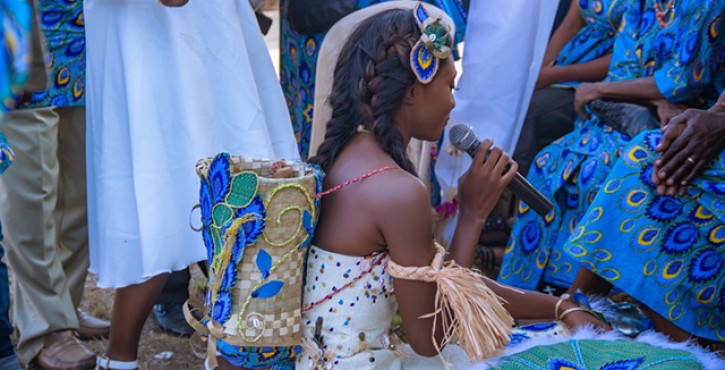1. Introduction
Customary marriage occupies a central place in Congolese society, reflecting deep-rooted cultural traditions and social norms. Its legal recognition, however, has evolved significantly, particularly with the enactment of the Family Code in 1987. This analysis examines the dual legal framework governing marriage in the Democratic Republic of the Congo (DRC), with a focus on the status of customary marriage, the procedural requirements for its registration, and the legal consequences of non-compliance.
2. Legal recognition of customary marriage in DRC
Congolese law recognizes two formal modes of contracting marriage: marriage by ascertainment, which refers to customary marriage celebrated according to traditional rites, and marriage by celebration, which is solemnized before a civil registrar[1]. Article 368 of the Family Code affirms the spouses’ right to freely choose between these two forms[2]. Where the marriage is celebrated within the family according to custom, the spouses are required to present themselves before the civil registrar within three months to have the marriage registered[3]. This period, initially set at one month, was extended to three months following the 2016 amendment to the Family Code[4].
The legal validity of a customary marriage does not depend on its registration. From the moment it is celebrated in accordance with traditional norms, the marriage is considered valid under customary law. Nevertheless, the law requires that such marriages be registered to ensure their enforceability in formal legal proceedings. Upon registration, the civil registrar issues an act of ascertainment, which serves as official recognition of the union. In contrast, civil marriages result in the issuance of a certificate of celebration[5].
3. Procedural requirements for registration of marriage
Article 370 of the Family Code outlines the procedural framework for registering a customary marriage. The spouses must, in principle, appear personally before the civil registrar. Exceptionally, they may be represented by a proxy, provided the proxy is a close relative and carries a written power of attorney[6]. If the proxy is not a close relative, the registrar has discretionary authority to assess the justification for this choice and may require the appearance of a closer relative if the reason is deemed insufficient[7].
In addition to the spouses or their proxy, the presence of one adult and legally competent witness for each spouse is mandatory[8]. These procedural safeguards are designed to ensure the authenticity of the marriage and to prevent fraud or misrepresentation.
4. Evolution of the legal framework
Prior to the enactment of the Family Code on 1 August 1988, customary marriages were governed primarily by local customs and community recognition. There was no statutory requirement for registration, and the validity of the marriage depended largely on social acknowledgment. The Family Code introduced a formal legal framework that preserved the substantive validity of customary marriage while imposing procedural obligations for its registration[9].
Although registration is not a condition for the validity of the marriage itself, it is essential for the legal enforceability of rights arising from the union. A customary marriage celebrated after 1 August 1988 remains valid under customary law, but may be unenforceable before courts or administrative bodies unless it is duly registered. This has direct implications for the spouses’ ability to assert legal rights related to property ownership, spousal support, child custody and maintenance, and inheritance[10].
5. Legal consequences of non-registration of marriage
Failure to register a customary marriage does not render it void ab initio. The marriage is presumed valid under customary norms and may only be annulled upon request by one of the parties, particularly in cases involving fraud, coercion, or incapacity[11]. The distinction between a voidable and an unregistered marriage is critical, a voidable marriage remains legally valid until annulled by a competent authority, whereas an unregistered marriage, though valid in substance, lacks legal effect in formal proceedings.
There is no explicit criminal sanction for failing to register a customary marriage. However, the absence of registration can result in significant legal disadvantages. In disputes over property, succession, or parental rights, courts may require additional evidence - such as witness testimony or community validation- to establish the existence and legitimacy of the marriage.
6. Conclusion
Customary marriage is fully recognized under Congolese law as a legitimate and valid form of union. However, registration with the civil registry is indispensable for ensuring legal certainty and the enforceability of rights derived from the marriage. While the law respects the cultural autonomy of traditional marriage practices, it also imposes procedural obligations that serve to integrate customary unions into the formal legal system. Spouses are therefore strongly advised to comply with the registration requirement within the prescribed timeframe to safeguard their legal interests and avoid future complications.
Prof. Joseph YAV KATSHUNG
[1] Family code (Code de la famille), art. 368, al. 1er.
[2] Ibid.
[3] Ibid., al. 2.
[4] Loi n° 16/008 du 15 juillet 2016 modifiant et complétant certaines dispositions du Code de la famille.
[5] Code de la famille, art. 369.
[6] Ibid., art. 370, al. 1er.
[7] Ibid., art. 370, al. 3.
[8] Ibid., art. 370, al. 2.
[9] Code de la famille, préambule et dispositions transitoires.
[10] Tribunal de grande instance de Kinshasa/Gombe, jugement du 12 mars 2004, RC 345/2003, relatif à la reconnaissance d’un mariage coutumier non enregistré.
[11] Code de la famille, art. 383 et suivants.

